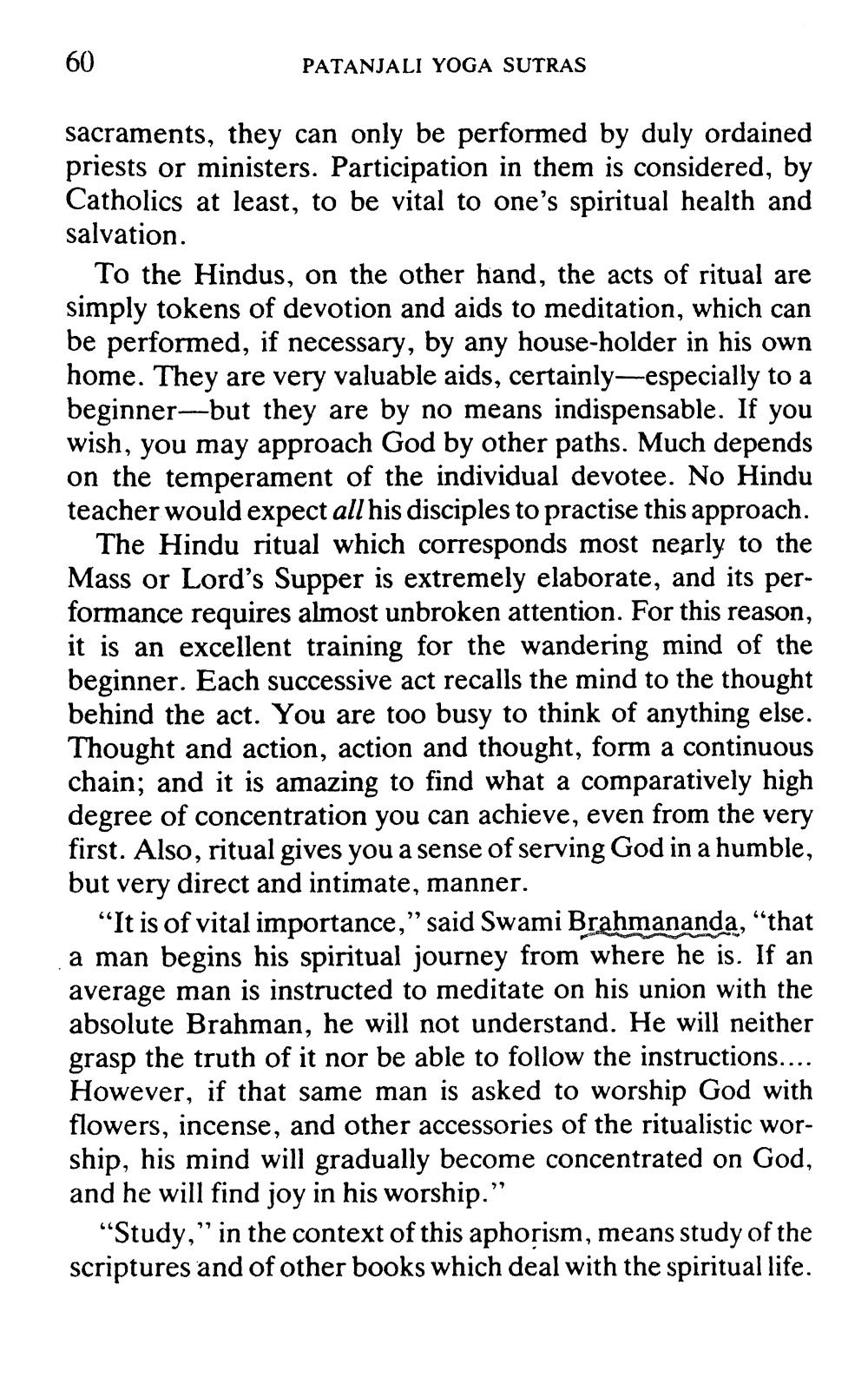________________
PATANJALI YOGA SUTRAS
sacraments, they can only be performed by duly ordained priests or ministers. Participation in them is considered, by Catholics at least, to be vital to one's spiritual health and salvation.
To the Hindus, on the other hand, the acts of ritual are simply tokens of devotion and aids to meditation, which can be performed, if necessary, by any house-holder in his own home. They are very valuable aids, certainly-especially to a beginner--but they are by no means indispensable. If you wish, you may approach God by other paths. Much depends on the temperament of the individual devotee. No Hindu teacher would expect all his disciples to practise this approach.
The Hindu ritual which corresponds most nearly to the Mass or Lord's Supper is extremely elaborate, and its performance requires almost unbroken attention. For this reason, it is an excellent training for the wandering mind of the beginner. Each successive act recalls the mind to the thought behind the act. You are too busy to think of anything else. Thought and action, action and thought, form a continuous chain; and it is amazing to find what a comparatively high degree of concentration you can achieve, even from the very first. Also, ritual gives you a sense of serving God in a humble, but very direct and intimate, manner.
“It is of vital importance,” said Swami Brahmananda, “that a man begins his spiritual journey from where he is. If an average man is instructed to meditate on his union with the absolute Brahman, he will not understand. He will neither grasp the truth of it nor be able to follow the instructions.... However, if that same man is asked to worship God with flowers, incense, and other accessories of the ritualistic worship, his mind will gradually become concentrated on God, and he will find joy in his worship.”
“Study,” in the context of this aphorism, means study of the scriptures and of other books which deal with the spiritual life.




